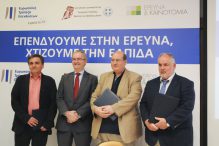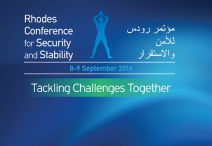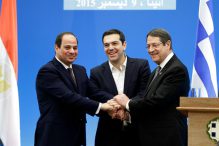Tag: Greece
-

Greek Embassy Reopens in Tripoli, Libya
Diplomatic missions suspended their activities at the Embassy in Tripoli on July 31, 2014, with the evacuation of a total of 186 Greek and foreign citizens. Now, Greece is planning to normalize ties with Libya again say diplomatic sources. Greek Foreign Minister Nikos Kotzias’ visit to Tripoli on November 29 is a precursor to the reopening of…
-

Hellenic Foundation for Research and Innovation to Strengthen Research across Greece
The European Investment Bank has agreed to provide 180 million euros to support the creation and first operations of the new Hellenic Foundation for Research and Innovation (ELIDEK). The creation of the Hellenic Foundation for Research and Innovation was formally announced on 15 July 2016 at a signature ceremony in Athens, attended by representatives from across the Greek…
-

Joint Communiqué – Rhodes Security and Stability Conference, Rhodes, 08.09-09.2016
The first Informal Ministerial Meeting of the Rhodes Security and Stability Conference provided the Ministers of Foreign Affairs and High Officials of Albania, Bulgaria, Cyprus, Egypt, Greece, Italy, Lebanon, Libya, Slovakia -in her capacity as President of the Council of the European Union-, Tunisia and United Arab Emirates with the opportunity to exchange views on…
-

Gas Finds in Egypt, Israel and Cyprus Redraw the Mediterranean Energy Map
In recent years, Egypt, Israel and Cyprus have all discovered huge natural gas fields off their coasts, raising export potential and perhaps the prospects for better political ties in the region through new energy partnerships. At least this is the scenario that the United States is hoping for. Last month, U.S. Secretary of State John…
